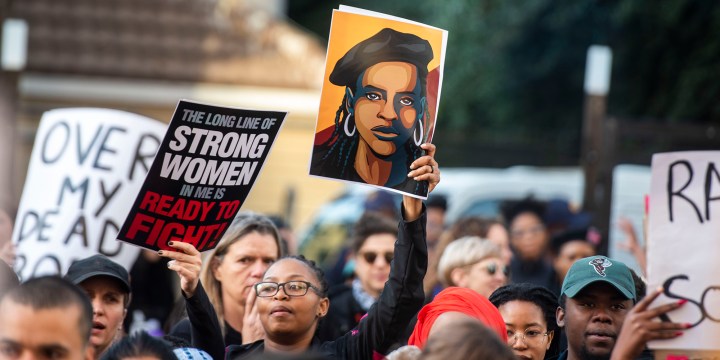OP-ED
Calls for reinstatement of the death penalty are futile

Using an-eye-for-an-eye approach by reintroducing the death penalty does not tackle the root cause of the high rate of gender-based violence in South Africa.
The year 2019 saw an unprecedented public uproar against gender-based violence in South Africa. What appeared to be the main spark of the social outcry was the rape and murder of 19-year-old UCT student Uyinene Mrwetyana in late August by a 42-year-old male employee at the Clareinch Post Office in Cape Town, Luyanda Botha.
Soon after the news of the murder broke nationally, about 300,000 people signed an online petition to the South African government and the Office of the President of South Africa. The petition was initiated by an organisation called Agent Of Change and it called for the death penalty to be reinstated in South African law and imposed on perpetrators of violent crimes.
This article looks at how reintroducing the death penalty would be considered constitutionally reprehensible by any South African court. The reader will be reminded of the landmark Constitutional Court judgment of S v Makwanyane and Another (CCT3/94) [1995] ZACC 3. This judgment was issued in the first case by the Constitutional Court, which sat for the first time on 14 February 1995. Its decision led to the abolition of the death penalty in South Africa. The reasons given by the Constitutional Court in the Makwanyane judgment still ring true today.
The S v Makwanyane judgment:
The two accused in this matter (T Makwanyane and M Mchunu) were found guilty by the Witwatersrand Local Division of the Supreme Court on four counts of murder, one count of attempted murder and one count of robbery with aggravating circumstances. They were sentenced to death on each count of murder and long terms of imprisonment on the other counts. They appealed to the Appellate Division of the Supreme Court against the convictions and sentences. The Appellate Division dismissed these appeals.
When the case eventually came before the Constitutional Court, the Court had to determine whether the death penalty was consistent with Chapter 3 of the 1993 Interim Constitution of South Africa (the interim Constitution). Chapter 3 provided for the fundamental right to life and human dignity and prohibited “cruel, inhuman or degrading treatment or punishment.” It was held that the death penalty sentence destroys life, which was unreservedly protected under section 9 of the interim Constitution. The court stated that the death penalty puts an end to one’s human dignity and that its enforcement has elements of arbitrariness and is irremediable. In the light of the interim Constitution, the court concluded that the death penalty is indeed a cruel, inhuman and degrading punishment, and it was subsequently abolished.
The most important extract from that judgment reads as follows:
[121] We would be deluding ourselves if we were to believe that the execution of a few persons sentenced to death during this period, and of comparatively a few other people each year from now onwards will provide the solution to the unacceptably high rate of crime. There will always be unstable, desperate, and pathological people for whom the risk of arrest and imprisonment provides no deterrent, but there is nothing to show that a decision to carry out the death sentence would have any impact on the behaviour of such people, or that there will be more of them if imprisonment is the only sanction.
Even though the Makwanyane case was not necessarily based on an act of gender-based violence, the reasons given by the Constitutional Court in 1995 are still very much applicable today. Societies all over the world will always have criminals for whom even the threat of being put to death provides no deterrent. Using an-eye-for-an-eye approach by reintroducing the death penalty does not tackle the root cause of the high rate of gender-based violence in South Africa. There are a number of factors that contribute to the high crime rate, such as the large economic gap between rich and poor and the lack of healthy family structures within society.
Although the online petition was a valiant effort by Agent Of Change, there is unfortunately no cogent evidence showing that reinstating the death penalty will provide a solution to the unacceptably high rate of crime in South Africa. DM
Sylvia Maila is an associate at Lindsay Keller Attorneys.



















 Become an Insider
Become an Insider